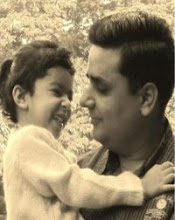The world is deprived of much of the potential talent, for which the fear of change plays a major role. Amitabh Bachchan started as a radio announcer (RJ was not in vogue at that time). His talent was hidden in acting and he went on to become one of the most celebrated actors India has produced. What he would be today had he not changed his career path at the right time? For that matter, just imagine Rajanikanth continuing as a bus conductor throughout his life or Sachin Tendulkar continuing with fast bowling. They became icons, but only after they changed their life paths in the right direction, unlike many talented individuals reluctant to change because of fear of uncertainty.
Stay committed to your decision. The resultant situation, even if adverse, won’t be worse than being entirely broken.
Change is the only constant in life, they say. It is probably one of the most clichéd statements. If people acknowledge this, why is change the most dreaded phenomenon at the same time? I have seen individuals dragging on with their lives because they fear change. Many suffer from frustration and depression because they fear change.
The justifying philosophy for reluctance to change, in most cases, is ‘why fix something which ain’t broken?’. Even if we acknowledge ‘what is broken’, we ‘move on’ with life unless the change is a compulsion and thrust upon us. Only when we are on the verge of being broken ‘entirely’, we are ready to change. This level is the ‘threshold’ level.
We need to identify the threshold level for any situation in advance in order we can manage this fear of change. This process of identification is the first major roadblock in the process. Once we overcome this roadblock, we need to define different levels of alertness based on the threshold level. We need to define an alarming level. We also need to define a ‘decision making’ level. All these levels necessarily have to be lower than the threshold level.
The next roadblock comes at the time of decision making, which is the most difficult part in the management of fear. With any decision, uncertainty is associated. This uncertainty is in fact the root cause of the fear. Even with detailed planning, we cannot guess all the repercussions of a decision in advance. We should seek the solutions for all possible adverse repercussions. But in any case, the decision making should not be held back till the situation reaches the threshold level. Once we have identified a ‘decision making’ level, the decision must be made at that level.

2 comments:
Thought provoking and motivating.
Thanks Minal.
Post a Comment